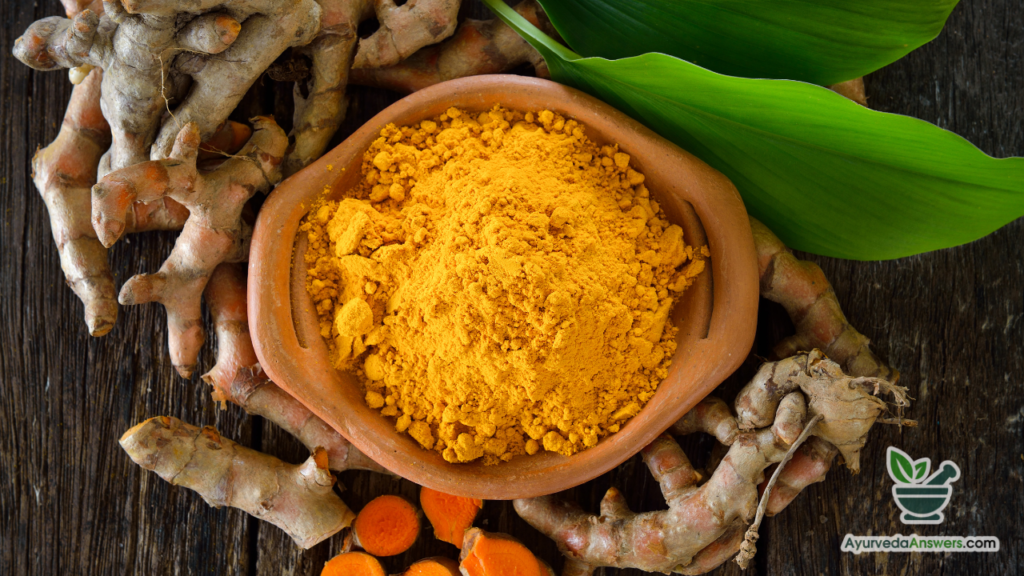
Heart disease is a leading cause of death worldwide. Thankfully, Ayurveda – India’s traditional medical system – offers natural ways to take care of your heart and circulatory system. In this article, we’ll explore Ayurvedic remedies, herbs, lifestyle tips and more for optimal heart health. Let’s dive in! 👇
Understanding Heart Health in Ayurveda
In Ayurveda, the heart is considered the seat of the mind and emotions. Heart problems can arise from emotional imbalances and unresolved trauma. Diet, lifestyle habits and constitutional factors also play a role.

Key principles of Ayurvedic cardiology
- Maintaining balance between vata, pitta and kapha doshas
- Ensuring proper digestion and metabolism
- Preventing accumulation of toxins like ama
- Managing emotional stress and nervous system hyperactivity
- Promoting healthy circulation through diet and herbs
Imbalances in vata dosha can lead to irregular heartbeat, palpitations, and arrhythmias. Excess pitta causes inflammation, high blood pressure, and cholesterol problems. Kapha imbalance impairs circulation and causes weight gain. Following an Ayurvedic lifestyle tailored to your prakriti or constitution is important.👍
Top Ayurvedic remedies for heart health.
Arjuna – The Cardiac Herb 🍃

Arjuna _(Terminalia arjuna)_ is renowned in Ayurveda for beneficial effects on the heart. The bark extract contains antioxidants like oligomeric proanthocyanidins and flavonoids that strengthen the heart muscles and boost its pumping efficiency.
Studies confirm Arjuna improves blood circulation, relieves angina pain, normalizes blood pressure, and protects the heart from oxidant damage. It’s especially useful for managing ischemic heart disease. Arjuna bark powder or extract can be taken daily as a preventive.
Arjuna also helps treat heart failure by improving cardiac output and ejection fraction. It regulates blood pressure in both hypertension and hypotension. The herb strengthens the heart after a heart attack and aids recovery. Arjuna is safe for long-term use.
Hawthorn Berry – For Blood Flow 🍒

Hawthorn _(Crataegus)_ berry and flower extracts act as natural calcium channel blockers to dilate blood vessels, improve circulation, and increase blood flow to the heart. This helps relieve hypertension, angina pain, arrhythmias, and mild congestive heart failure.
Hawthorn berry also exhibits antioxidant, anti-inflammatory and cholesterol-lowering activity for well-rounded cardiovascular protection. It can be consumed as a tea, tincture, or herbal capsule.
Hawthorne is rich in polyphenols that protect blood vessels, prevent atherosclerosis, and reduce plaque formation. The herb has been shown to reduce angina attacks and improve exercise tolerance in those with heart disease.
Garlic – For Heart and Cholesterol ✨

Garlic is one of the most widely researched medicinal plants, with proven effects on heart health and cholesterol levels. Compounds like allicin in garlic exhibit anti-hypertensive action by relaxing smooth muscle cells in artery walls.
Garlic also reduces cholesterol synthesis and helps prevent fat accumulation in blood vessels. Including garlic in your regular diet helps maintain healthy circulation and blood flow.
Studies show garlic supplementation can lower total cholesterol by up to 15% and reduce arterial plaque volume by up to 18%. Garlic inhibits platelet aggregation to prevent clotting that underlies heart attacks and stroke. Its sulfur compounds exert antioxidant, anti-inflammatory benefits.
Guggul – The Cholesterol Buster 💪

Guggul is an Ayurvedic resin obtained from the Commiphora mukul tree. The active compounds guggulsterones have been shown to lower harmful LDL and triglycerides, while elevating protective HDL cholesterol.
Guggul has anti-atherosclerotic effects that inhibit plaque formation in arteries. The resin is available in tablet/capsule form and is used to help regulate lipids and prevent coronary artery disease.
Research reveals guggul lowers LDL by 17-27% and raises HDL by 12-30%. Guggulsterones are antagonist ligands for the farnesoid X receptor – decreasing cholesterol absorption, synthesis, and TG production. The hypolipidemic effects make guggul an excellent ayurvedic approach for dyslipidemia.
Turmeric – The Golden Spice 🌟

The vibrant yellow turmeric spice contains the polyphenol curcumin which has antioxidant, anti-inflammatory, antimicrobial, and cardio-protective properties. Curcumin improves endothelial function, reduces platelet aggregation, inhibits blood clotting, and prevents LDL oxidation.
Including turmeric in your diet helps maintain the heart and circulatory system, while boosting overall health and immunity. The spice can be used in curries, soups, smoothies, and more.
Curcumin combats multiple drivers of heart disease – oxidative stress, inflammation, dyslipidemia, platelet aggregation. It improves vascular endothelium health and lowers atherosclerotic changes. Curcumin shows promise for managing coronary artery disease.
Cayenne – For Blood Flow 🍃

Cayenne pepper improves circulation by stimulating vasodilation and fluidifying blood. The bioactive capsaicin in cayenne helps reduce hypertension, regulates cholesterol levels, and prevents heart arrhythmias.
Cayenne also exhibits anti-atherosclerotic and anti-platelet activity for vascular protection. Adding a pinch of cayenne to meals stimulates circulation and benefits heart health.
Cayenne contains health-promoting carotenoids like capsanthin, capsorubin, and zeaxanthin. It aids nitric oxide production to relax blood vessels. Capsaicin also exhibits anti-clotting effects by blocking platelet aggregation. This makes cayenne helpful for peripheral arterial disease.
Lifestyle Tips for a Healthy Heart ♥️

Besides herbs, Ayurveda recommends certain lifestyle habits for maintaining a healthy heart:
- Getting adequate sleep and rest – Minimum 7-8 hours daily
- Managing emotional stress through yoga, meditation, journaling
- Eating a wholesome diet rich in veggies, fruits, legumes, grains
- Avoiding tobacco, excess alcohol, salty/fatty foods
- Exercising moderately each day and maintaining ideal body weight
- Practicing pranayama like Anuloma Viloma to regulate breathing
- Massaging the body with calming Ayurvedic oils
- Taking relaxing vacations in nature
- Seeking counseling for unresolved grief, trauma, anger
Regular exercise is excellent for heart health. Try brisk walking, jogging, cycling, swimming. Yoga asanas like virasana, balasana calm the mind and benefit the heart. Pranayama and meditation reduce stress hormones for better cardiovascular function.
Signs of Heart Trouble in Ayurveda

Some concerning signs per Ayurveda include:
- Chest pain, tightness, or heaviness
- Shortness of breath, coughing, wheezing
- Irregular heartbeat and palpitations
- Swelling of feet and ankles
- High blood pressure
- Cholesterol imbalance
- Fatigue, anxiety, sweating, dizziness
- Numbness/tingling in limbs
- Fainting or lightheadedness
Don’t ignore such symptoms – seek medical evaluation promptly. Early intervention can help manage heart disease effectively.🙏
Conclusion
Ayurveda offers a holistic approach to caring for the heart through natural remedies, preventive herbs like Arjuna and Hawthorn, dietary changes and stress management. Maintaining balance in the body and mind is key. Seek prompt medical care if you experience any concerning cardiac symptoms. With Ayurveda’s guidance, here’s to a happy, healthy heart! 💗
Disclaimer : The ancient healing techniques described in these articles are not intended as substitutes for professional medical advice or treatment. Consult a physician before trying any new health treatment. Do not stop or change prescribed medications without consulting your healthcare provider. The information provided is for educational purposes only. Results will vary based on individual factors. Always rely on the guidance of a qualified medical professional for any health concerns.
Read Our Latest Articles
- Ayurveda for Disc Bulge: Finding Relief Naturally
- Ayurveda for Alopecia Areata: Nurturing Hair Health Naturally
- Ayurveda for Asthma: Breathe Easy with Natural Solutions
- Ayurveda for Melasma: Embracing Natural Solutions for Clear, Radiant Skin
- Ayurveda for Dampness in the Body: Embracing Balance and Vitality
Leave a Reply